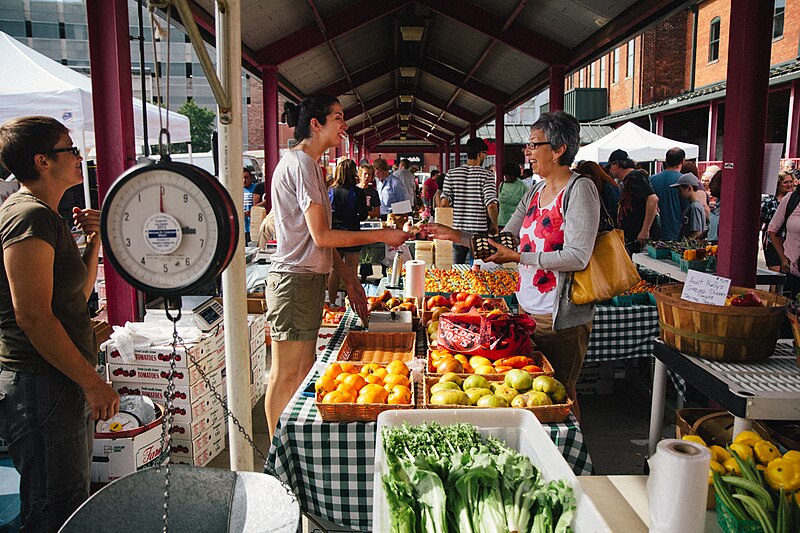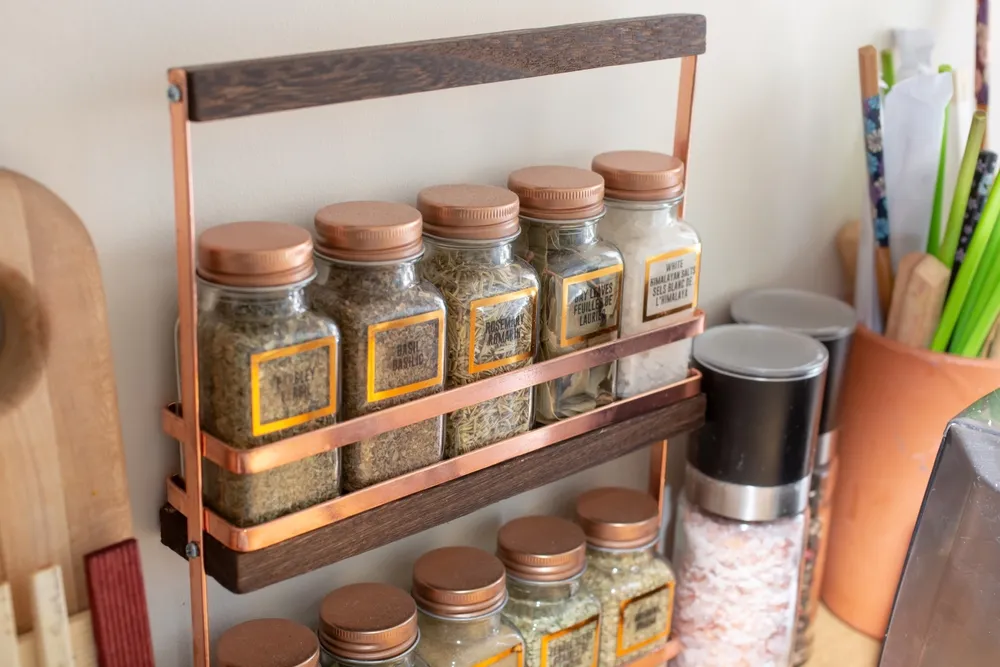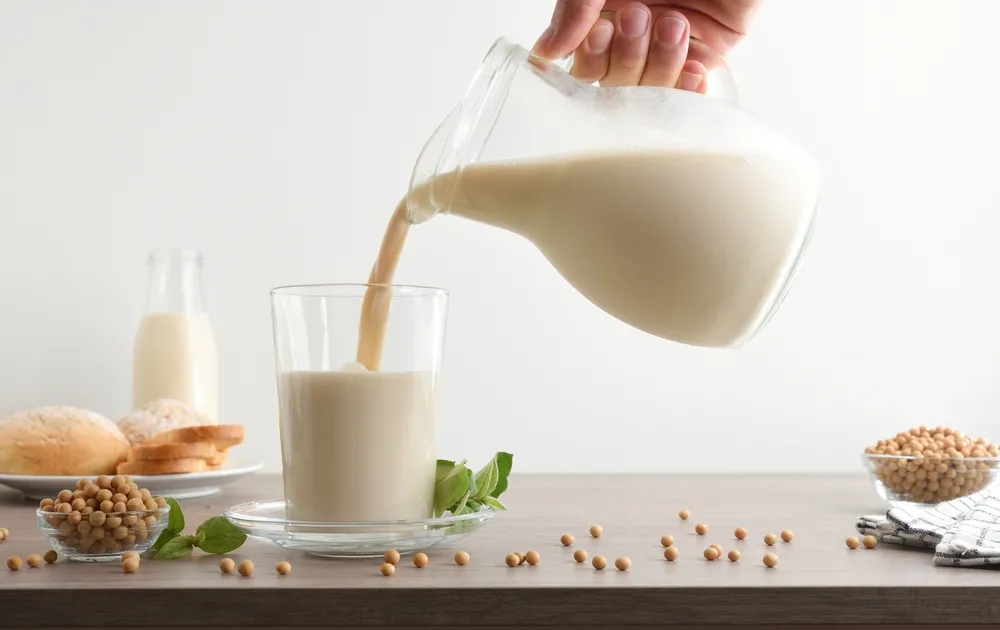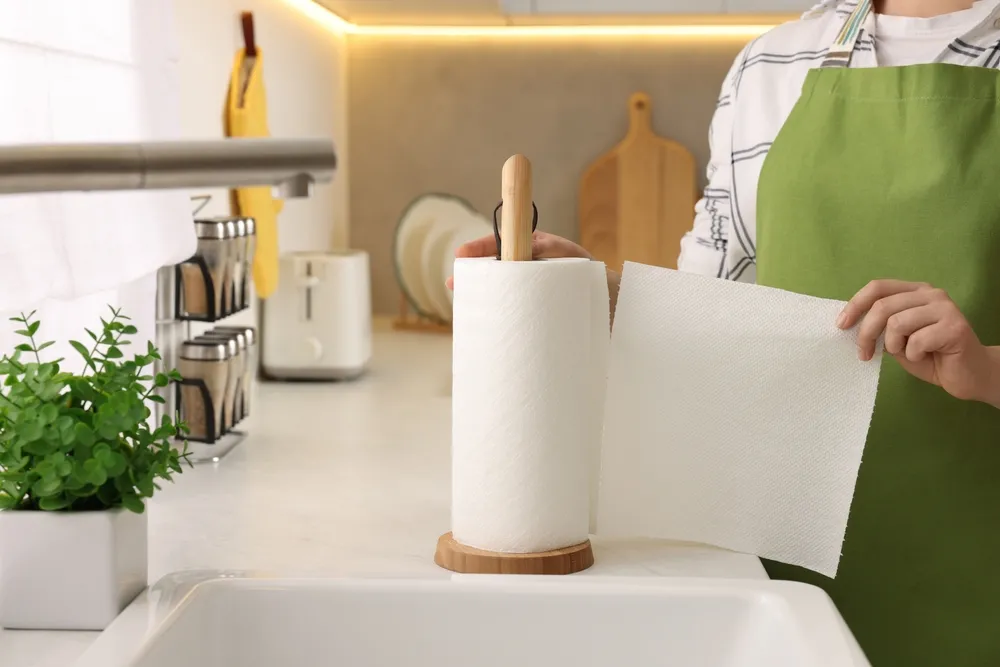Buying in bulk can be a smart way to save money and reduce shopping trips, but not everything deserves a spot in your oversized cart. While some items are perfectly suited for bulk purchases, others might end up costing you more in the long run or create unnecessary waste. Let’s explore 14 everyday items you should always and never buy in bulk.
1. Stock Up on Toilet Paper

Toilet paper is a staple in every household, and buying it in bulk is almost always a good idea. Not only do you save money by purchasing larger quantities, but you also avoid frequent trips to the store. Toilet paper doesn’t spoil or go bad, so there’s no risk of waste. If you have the storage space, consider buying larger packs from warehouse stores. According to a study by Statista, the average American uses about 141 rolls per year, so stocking up on this essential can keep your household running smoothly.
However, ensure you have adequate storage space that can keep your bulk purchase safe from moisture. A garage or a basement storage room works perfectly, but avoid damp areas that could cause damage to the paper. Buying toilet paper in bulk is especially beneficial for larger families or households that host frequent guests. Additionally, during times of crisis or high demand, having a stockpile can provide peace of mind. Just be cautious during sales or promotions to avoid over-purchasing beyond your storage capacity.
2. Avoid Bulk Buys of Fresh Produce

While fresh fruits and vegetables are integral to a healthy diet, buying them in bulk isn’t always wise. Unless you’re feeding a large family or hosting a party, most fresh produce can spoil before you have a chance to use it all. According to the Recycle Track Systems website, the average American family wastes a significant amount of produce each year. This not only impacts your budget but also contributes to food waste. Instead of buying in bulk, shop for produce weekly or even bi-weekly to ensure freshness and minimize waste.
Consider using frozen fruits and vegetables as an alternative if you want to stock up. They last much longer and often retain more nutrients than fresh produce that sits around for too long. Additionally, meal planning can help you predict exactly how much fresh produce you’ll need. This way, you buy only what you’ll use, avoiding the guilt of tossing spoiled fruits and veggies. Experiment with preserving techniques like pickling or freezing if you happen to have excess produce.
3. Bulk Buy: Canned Goods for the Win

Canned goods are perfect candidates for bulk buying due to their long shelf life and versatility. Items like canned beans, tomatoes, and soups can be used in a variety of recipes and stored for years. Buying these in bulk can save you money and ensure you have ingredients on hand for quick meals. The FDA ensures strict guidelines for canned goods, making them a safe bulk purchase option. Plus, during emergencies or unexpected events, having a stash of canned foods can be a lifesaver.
When buying canned goods in bulk, pay attention to the expiration dates to ensure you’ll use them before they go bad. It’s also wise to store them in a cool, dry place to maximize their shelf life. Rotate your stock by placing newer purchases behind older ones to avoid letting anything expire accidentally. Buying in bulk also allows you to take advantage of sales and discounts, stretching your grocery budget further. If you have the space and the need, canned goods are a practical and economical choice for bulk buying.
4. Say No to Bulk Spices

Spices are essential for adding flavor to meals, but they don’t last forever. Buying them in bulk might seem cost-effective at first, but spices lose their potency over time. Unless you’re running a restaurant, you’re unlikely to use up bulk quantities before they start to lose their flavor. It’s better to buy spices in smaller quantities to ensure they remain fresh and effective. A few exceptions exist, like salt and pepper, which maintain their flavor longer, but most other spices should be purchased in moderation.
Consider storing spices in airtight containers to extend their shelf life, keeping them away from heat and light. This helps preserve their taste and effectiveness, reducing the likelihood of waste. If you enjoy experimenting with different cuisines, build a collection of spices gradually. You can also buy whole spices and grind them yourself for a fresher taste, as whole spices retain their flavor longer. Remember, quality over quantity when it comes to spices ensures your dishes taste their best.
5. Bulk Purchases of Cleaning Supplies

Cleaning supplies are another excellent candidate for bulk purchases due to their long shelf life and constant demand in households. Items like detergent, dish soap, and multipurpose cleaners are used regularly and don’t spoil, making them ideal for bulk buys. By purchasing these items in larger quantities, you can save money and reduce the frequency of shopping trips. Just make sure you have a suitable storage area to keep them organized and accessible.
In addition to cost savings, buying cleaning supplies in bulk can help you avoid running out unexpectedly. It’s also an environmentally friendly practice, as it reduces packaging waste compared to buying smaller sizes more frequently. Look for concentrated formulas that offer more uses per bottle, further stretching your investment. While you might not need an industrial-sized container of every cleaner, focusing on the ones you use most often is a smart strategy. Just be cautious with specialty cleaners that you might not use as frequently.
6. Don’t Overdo It with Dairy Products

Dairy products like milk, cheese, and yogurt have a relatively short shelf life, making them poor candidates for bulk buying unless you have a large family or specific needs. Even if you refrigerate them, you’ll face expiration dates sooner than you’d like. Buying in bulk can lead to spoilage, wasting both food and money. Instead, purchase dairy products as needed, taking advantage of sales or smaller packages to ensure freshness.
If you’re tempted by bulk dairy buys, consider storing extras in the freezer. Cheese, butter, and even milk can be frozen, but their texture might change slightly. For those who consume dairy regularly, a weekly or bi-weekly shopping routine helps avoid spoilage. Additionally, keep an eye on expiration dates when you shop to choose the freshest options available. This way, you enjoy dairy at its best without contributing to food waste.
7. Embrace Bulk Buys of Pasta and Rice

Staples like pasta and rice are excellent choices for bulk purchases. They have a long shelf life, are versatile, and form the base of many meals. You can store them in a cool, dry place for months, ensuring you always have something on hand for quick dinners. Buying in bulk often reduces the cost per unit, making it a budget-friendly option for families or individuals who enjoy cooking at home.
Before purchasing, consider the types of pasta and rice you use most frequently to avoid unnecessary varieties taking up space. Airtight containers are great for preserving freshness and keeping pests away. You can also explore different recipes and cuisines without worrying about running out of these essentials. Whether it’s a simple pasta dish or a hearty rice pilaf, having a bulk supply of these ingredients opens up a world of culinary possibilities. Take advantage of sales or loyalty programs to further enhance your savings.
8. Steer Clear of Bulk Cosmetics

While cosmetics are part of daily routines for many, they aren’t the best candidates for bulk buying. Products like foundation, mascara, and lipstick have expiration dates and can lose effectiveness over time. Buying in bulk might lead to wasted products and money if you can’t use them quickly enough. Instead, focus on purchasing cosmetics as you need them, ensuring they’re fresh and suitable for your skin.
If you’re tempted to stock up due to a sale or promotion, consider the frequency of use and shelf life of each product. Some items, like moisturizer or body lotion, might be safe bets due to everyday use. However, specialty items or those with shorter expiration dates could be better purchased individually. Additionally, consider whether your preferences or skin tones might change over time, affecting your choice of products. By being strategic with your cosmetic purchases, you ensure a fresh and effective collection.
9. Bulk Purchases of Pet Food

Pet food is another smart choice for bulk buying, especially for those with multiple pets or larger breeds that require more food. Dry pet food, in particular, has a long shelf life and can be stored in airtight containers to maintain freshness. By buying in larger quantities, you can save money and reduce trips to the store, ensuring your furry friends are always well-fed. Make sure your storage area is cool and dry to prevent spoilage and pests.
Before purchasing, consider your pet’s dietary needs and the frequency of consumption. Some pets might have specific dietary requirements or preferences, so focus on the foods they eat regularly. Additionally, check expiration dates to ensure you’ll use the food before it goes bad. If you’re trying out a new brand or flavor, start with a smaller package to ensure your pets enjoy it before committing to a bulk purchase. By planning wisely, you can provide for your pets’ needs while saving money and minimizing hassle.
10. Avoid Large Quantities of Baking Supplies

Unless you’re an avid baker or run a home-based bakery, buying baking supplies in bulk may not be practical. Items like flour, sugar, and baking powder have a limited shelf life and can lose their freshness over time. Additionally, improper storage can lead to pests or spoilage, resulting in wasted ingredients. Instead, purchase baking supplies as needed or in smaller quantities, ensuring they’re fresh and ready for your next baking project.
If you do decide to buy in bulk, invest in airtight containers to prolong the shelf life of your supplies. Keeping them in a cool, dry place prevents moisture and pests from compromising the ingredients. Consider your baking habits and frequency to determine the appropriate quantities for your household. Having a small reserve is always beneficial for impromptu baking sessions, but avoid overstocking on items that could go unused. A balanced approach helps maintain quality while still enjoying homemade treats.
11. Bulk Buying: Paper Towels

Similar to toilet paper, paper towels are a household necessity that can be bought in bulk. They have a long shelf life and are used for various cleaning and cooking tasks, making them a staple in many homes. Buying them in larger quantities can save money and reduce the frequency of shopping trips. If you have the storage space, consider purchasing larger packs to take advantage of discounts.
When storing paper towels, keep them in a dry area to prevent moisture damage. Having a bulk supply also means you’re less likely to run out during unexpected messes or spills. Consider the usage patterns in your household to determine the right quantity for your needs. For those who prioritize environmental sustainability, choosing recycled or eco-friendly options in bulk can also be a wise decision. By planning wisely, you can ensure a steady supply of paper towels without compromising on quality or budget.
12. Refrain from Bulk Buys of Perishable Snacks

Snacks like chips, crackers, and baked goods are tempting to buy in bulk, but they often have short shelf lives. Unless you have a large family or host frequent gatherings, bulk snacks may go stale before you can enjoy them. Instead, purchase these items in smaller quantities or single-serving packages, ensuring freshness and variety. This approach allows you to try different snacks without the risk of waste or spoilage.
For those who love variety, smaller packages offer the chance to explore different flavors and brands without commitment. Consider your snacking habits and consumption rate to guide your purchases. If you’re trying to maintain a healthier lifestyle, smaller packages can also help with portion control. By focusing on quality and freshness, you can enjoy satisfying snacks without the guilt of waste. Prioritize your favorite treats and rotate them to keep your snacking experience delightful.
13. Bulk Buys of Personal Care Items

Personal care items like shampoo, conditioner, and soap are excellent candidates for bulk purchases. These products have a long shelf life and are used daily, making them ideal for stocking up. Buying them in larger quantities can lead to savings and fewer trips to the store. Consider purchasing family-size or multi-pack options to make the most of your bulk buy.
Ensure you have adequate storage space to keep these items organized and accessible. If you have specific preferences in brands or fragrances, buying in bulk ensures you always have your preferred products on hand. During sales or promotions, take advantage of discounts for even more savings. Bulk purchasing of personal care items also reduces the environmental impact by decreasing packaging waste. By planning ahead, you can maintain a well-stocked supply of essentials without compromising on quality.
14. Think Twice Before Bulk Buying Condiments

While condiments are a kitchen staple, they aren’t always the best choice for bulk buying. Items like ketchup, mayonnaise, and mustard have expiration dates, and larger quantities might go unused before they spoil. Instead, focus on buying condiments in quantities that match your consumption rate. This ensures they’re fresh and avoids cluttering your refrigerator or pantry with half-used bottles.
If you’re hosting a large event or have a big family, buying larger bottles might make sense, but otherwise, smaller sizes are practical. Keep an eye on expiration dates and rotate your stock to avoid waste. For those who enjoy trying new flavors, smaller bottles allow you to explore different options without commitment. By purchasing condiments in moderation, you can enjoy fresh, flavorful meals without the risk of spoilage. Ensure a balanced approach to stock your kitchen with the essentials you love.
This article is for informational purposes only and should not be construed as financial advice. Consult a financial professional before making investment or other financial decisions. The author and publisher make no warranties of any kind.








